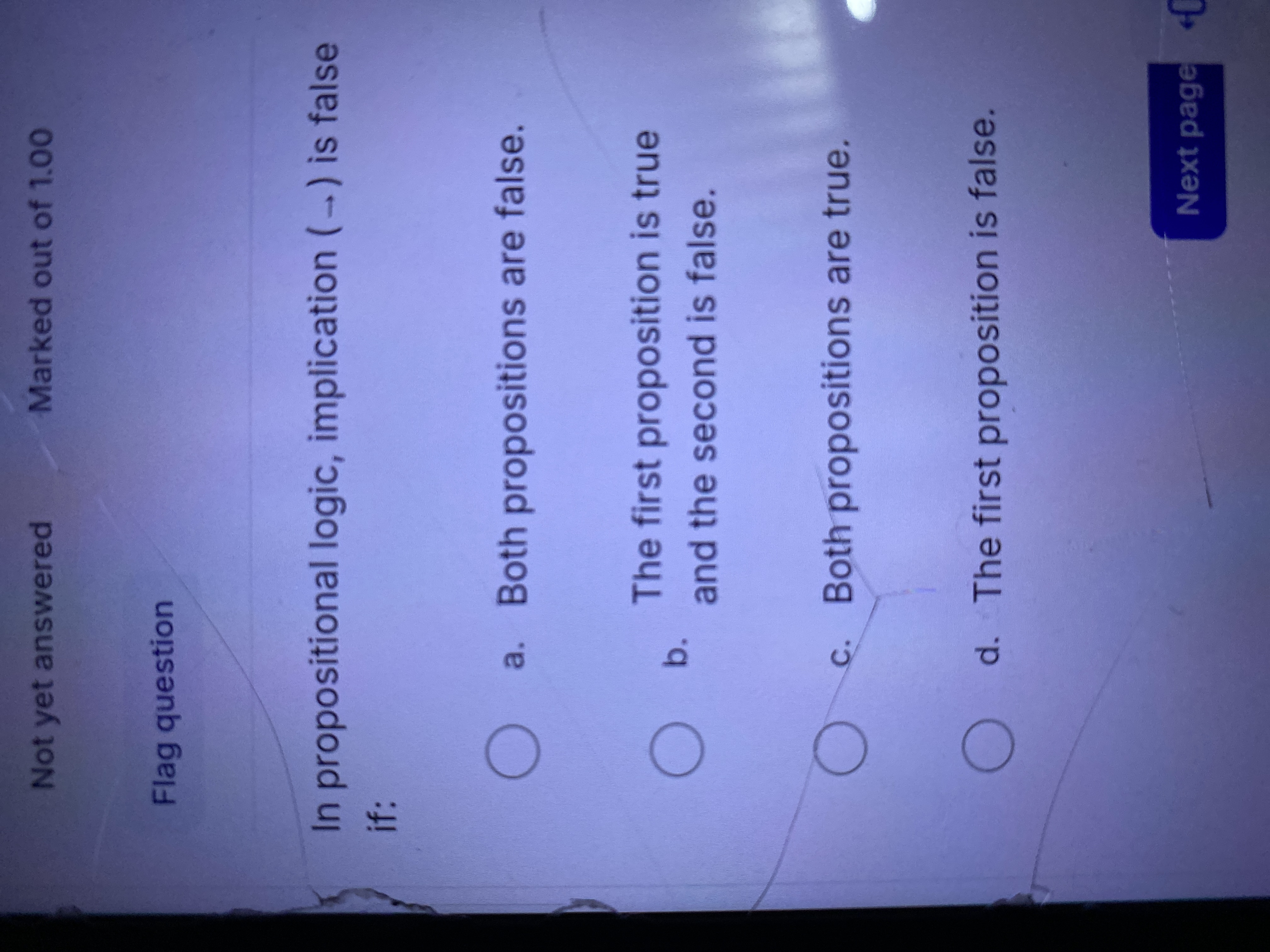In propositional logic, implication (→) is false if:

Understand the Problem
The question is asking about the conditions under which an implication in propositional logic is considered false. It provides multiple-choice options regarding the truth values of two propositions.
Answer
The first proposition is true and the second is false.
The final answer is: The first proposition is true and the second is false.
Answer for screen readers
The final answer is: The first proposition is true and the second is false.
More Information
In propositional logic, an implication statement (p ⇒ q) is only false when the first proposition (p) is true and the second proposition (q) is false. In all other cases, it is considered true.
Tips
A common mistake is to assume that implications are false only when both propositions are false. Remember, implications are false only when the first is true and the second is false.
Sources
- A Spiral Workbook for Discrete Mathematics - math.libretexts.org
- Propositional Logic - Discrete Mathematics - discrete.openmathbooks.org
AI-generated content may contain errors. Please verify critical information